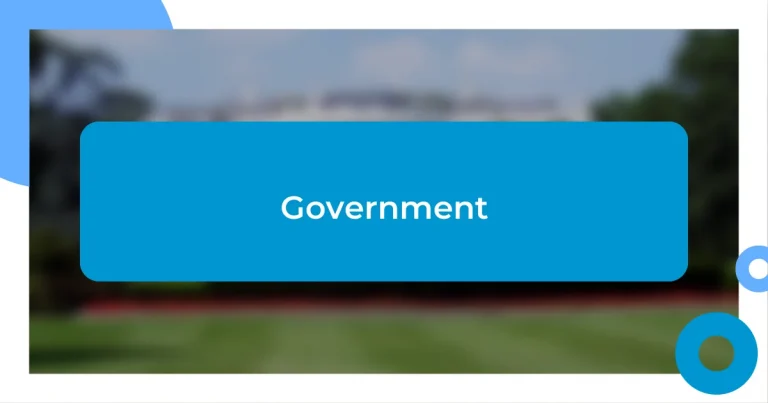Key takeaways:
- Understanding economic shifts is vital; they impact budgets and necessitate adaptability in spending habits.
- Employing techniques like zero-based budgeting and adjustable expense tracking can enhance financial control during economic fluctuations.
- Regular monitoring of expenses and evaluating outcomes encourages mindful spending, leading to better financial stability and goal achievement.
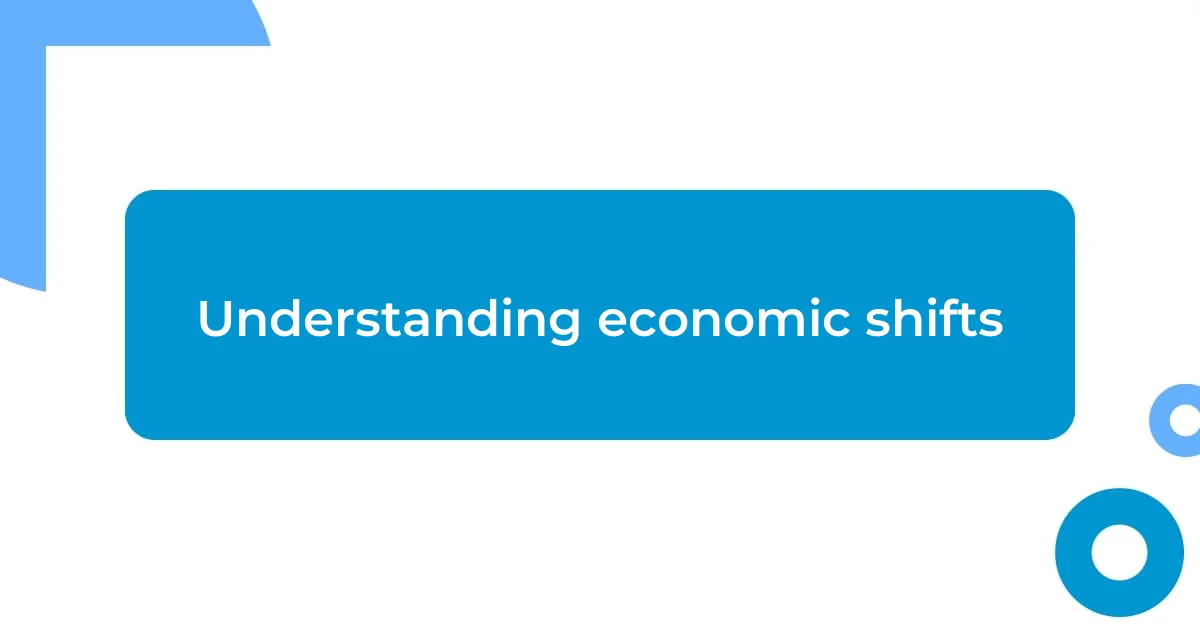
Understanding economic shifts
Economic shifts are like the weather—sometimes, you can sense a storm brewing, and other times, it hits you unexpectedly. I remember the sudden rise in inflation a couple of years back; I was caught off guard, and I watched my purchasing power dwindle. It made me question how prepared I really was to face these fluctuations in my financial landscape.
As I navigated these changes, I began to realize that understanding our economy’s cycles is crucial. Have you ever noticed how a seemingly small event can ripple throughout the market? For instance, when a major country announces trade restrictions, it not only affects global supply chains but also influences local prices. This interconnectedness made me appreciate the importance of staying informed and adapting my budget accordingly.
Reflecting on my experiences, I found that shifts in the economy often lead to shifts in mindset. When the job market tightened, I felt a wave of anxiety, prompting me to reevaluate my spending habits. This was a pivotal moment for me; it drove home the reality that adaptability isn’t just a financial strategy but a necessary skill set to thrive in changing times. Have you considered how well you adapt during these moments?
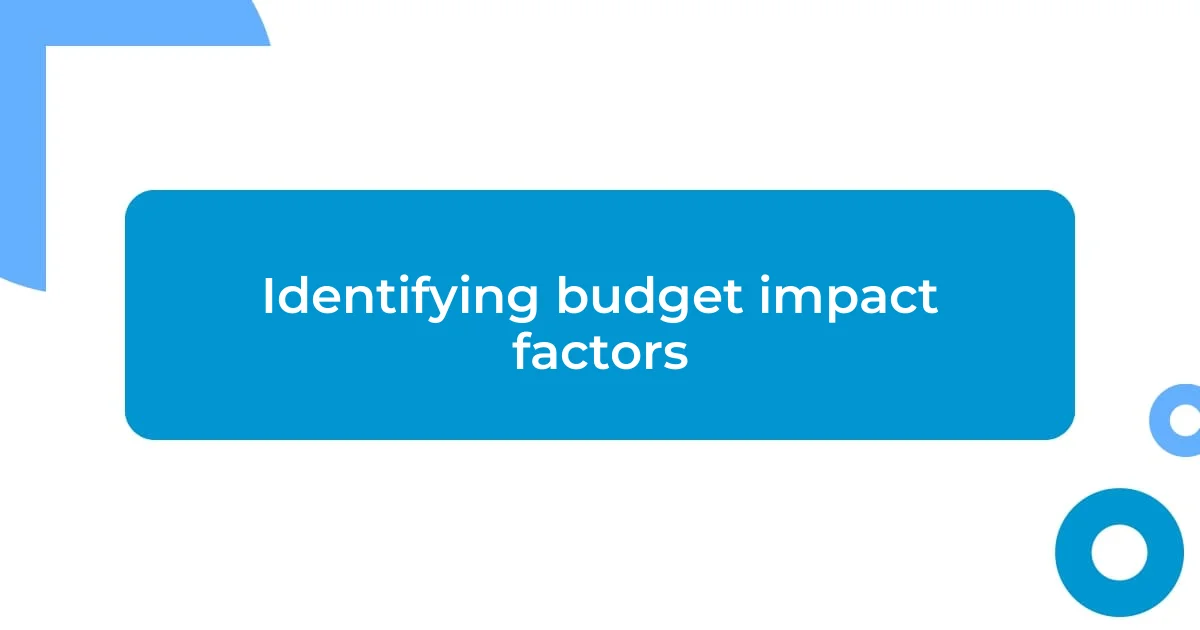
Identifying budget impact factors
Identifying the factors that impact my budget required a keen observation of external influences. I found that changes in interest rates often had a direct effect on my monthly expenses. For example, when rates climb, my mortgage payments rise, turning my financial picture upside down. Have you noticed how a small tweak in one area can send shockwaves through your entire financial plan?
Another significant factor that I couldn’t overlook was my income stability. During a bout of economic uncertainty, my job felt less secure, leading me to instinctively tighten my budget. This feeling of instability pushed me to prioritize essential expenses and curb discretionary spending. When have you felt the need to adjust your financial priorities due to your job security?
Lastly, the cost of goods and services plays a critical role in budget management. I can vividly recall grocery prices skyrocketing during an economic downturn, which forced me to get creative in meal planning. Finding ways to trim costs while maintaining a balanced diet not only saved money but also became a fun challenge. How do you tackle rising prices in your day-to-day spending?
| Impact Factor | Personal Experience |
|---|---|
| Interest Rates | Increased mortgage costs led to a need for reevaluation of monthly expenses. |
| Income Stability | Job insecurity prompted a tightening of the budget, focusing on essential expenses. |
| Cost of Goods | Soaring grocery prices led to creative meal planning and cost-cutting strategies. |
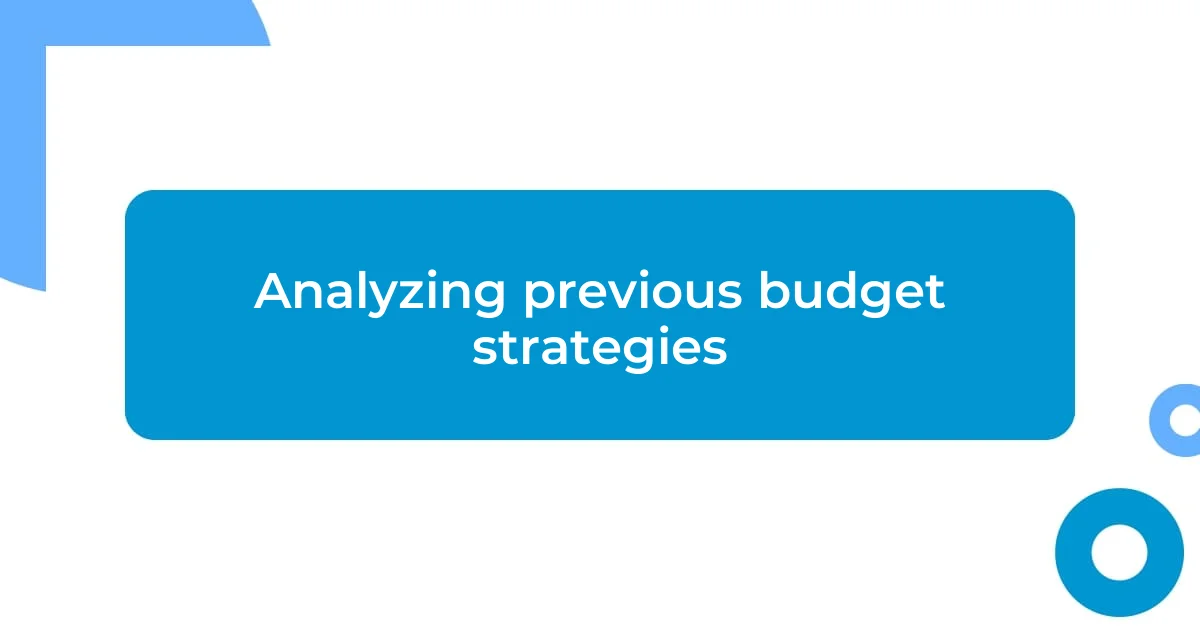
Analyzing previous budget strategies
Analyzing my previous budget strategies gave me immense clarity on how I can better navigate economic fluctuations. One particular period stands out: I made the choice to adopt a zero-based budgeting approach during a significant downturn. This method forced me to allocate every dollar of my income to a specific category, which brought a startling awareness to my spending habits. I remember the sense of control it provided me during those uncertain times, alongside the relief as I intentionally directed funds to necessities.
- Embracing zero-based budgeting created a clearer picture of my financial priorities.
- Regularly tracking my expenses helped me identify patterns that might otherwise slip through the cracks.
- I learned the value of setting aside a ‘buffer fund’ for emergencies, allowing me to face unexpected expenses with confidence.
Reflecting on different budgeting techniques, I discovered that flexibility can be a game changer. In moments where I felt overwhelmed by economic pressures, I would revert to a simple envelope system. Designating specific envelopes for categories like groceries, entertainment, and savings helped me visualize my limits. Feeling those physical envelopes reminded me of the financial boundaries I had set for myself, making tough choices less daunting.
- The envelope method turned budgeting into a tangible activity rather than an abstract exercise.
- It created a stronger connection to my spending, making me rethink before reaching for my card.
- Each envelope represented my goals and desires, reinforcing my commitment to stick to the budget.
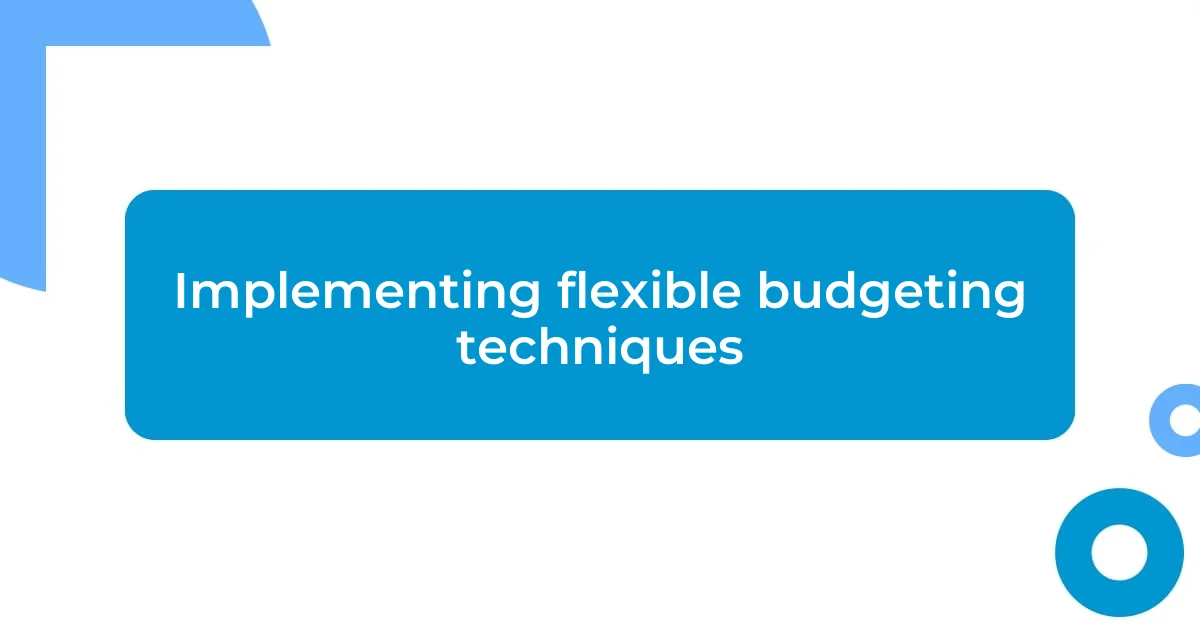
Implementing flexible budgeting techniques
Implementing flexible budgeting techniques transformed my approach to managing finances during turbulent times. I remember a particular instance where I started using a rolling budget, which allowed me to adjust my spending categories based on real-time income and expenses. It was liberating to allocate funds on a month-to-month basis, adapting quickly if, say, my car unexpectedly needed repairs. Have you ever found peace of mind in having that kind of fluidity with your budget?
Another effective strategy for me was incorporating a variable expense tracker. I established a dynamic system that automatically adjusted my budget for necessities—like utilities and groceries—when I noticed unpredictable spikes. This proactive approach not only reduced stress but also empowered me to make informed decisions on discretionary spending. I distinctly recall the sense of triumph when I realized I could still enjoy a weekend getaway without jeopardizing my financial stability. Isn’t it amazing how a little adjustment can open up new opportunities?
Lastly, I found that revisiting and revising goals frequently made a huge difference. Every couple of months, I would sit down and reflect on both short-term and long-term objectives. I’d think about what truly mattered to me, like saving for a vacation versus paying off debt. This ongoing dialogue with my budget motivated me to stay aligned with my priorities while allowing for spontaneity. Have you ever given yourself the freedom to change your financial goals based on what you truly value?
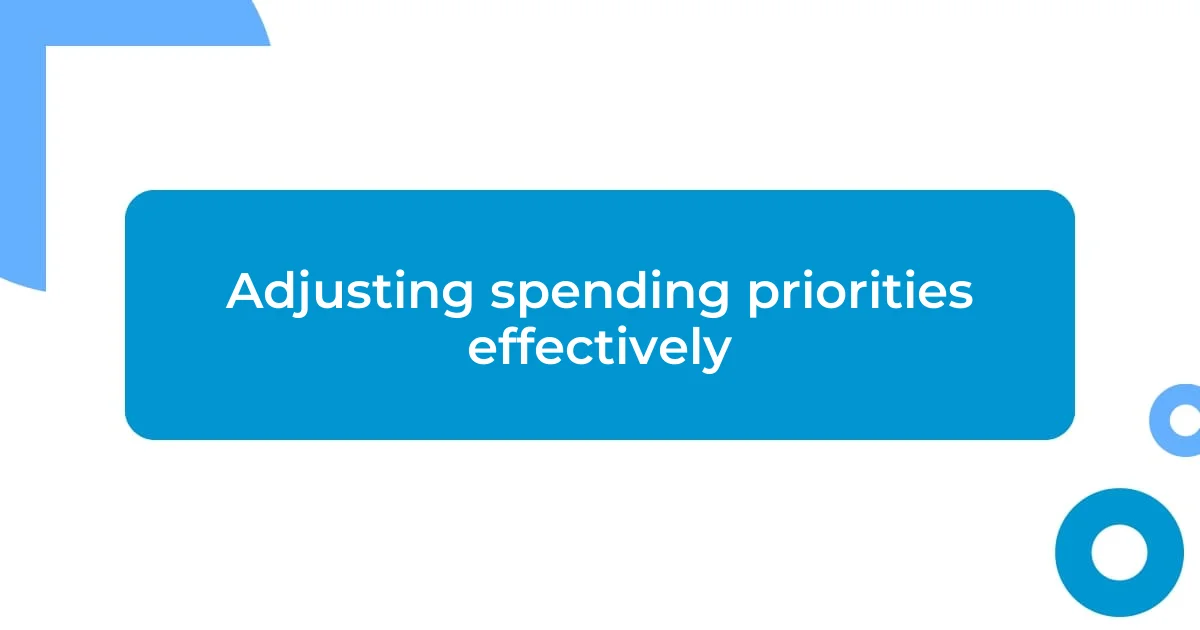
Adjusting spending priorities effectively
Adjusting spending priorities effectively requires a keen understanding of what truly matters to you. I distinctly remember when I had to decide between upgrading my phone and paying for a family gathering. It hit me that while I enjoy my tech, being present with loved ones held far more significance. This moment shifted my perspective about what should take precedence in my budget. Are there moments in your life where you’ve had to weigh priorities?
One principal strategy I employed was categorizing my spending into needs, wants, and savings. It created a clear visual roadmap. I often found myself surprised at how much I could stretch my budget when I prioritized essentials over fleeting desires. For example, I learned to cook at home instead of dining out frequently, which not only saved money but also brought a newfound joy in meal preparation. Have you ever discovered a hidden love for cooking when trying to trim expenses?
I also felt a stronger commitment to long-term goals when I actively assessed my spending every month. This process of reflection became almost therapeutic. I could see how my choices were either propelling me toward financial freedom or holding me back. By embracing this habit, I was able to tackle debt with renewed determination, and eventually, I even treated myself to a much-anticipated trip. Isn’t it refreshing how re-evaluating your priorities can pave the way for both financial stability and personal fulfillment?
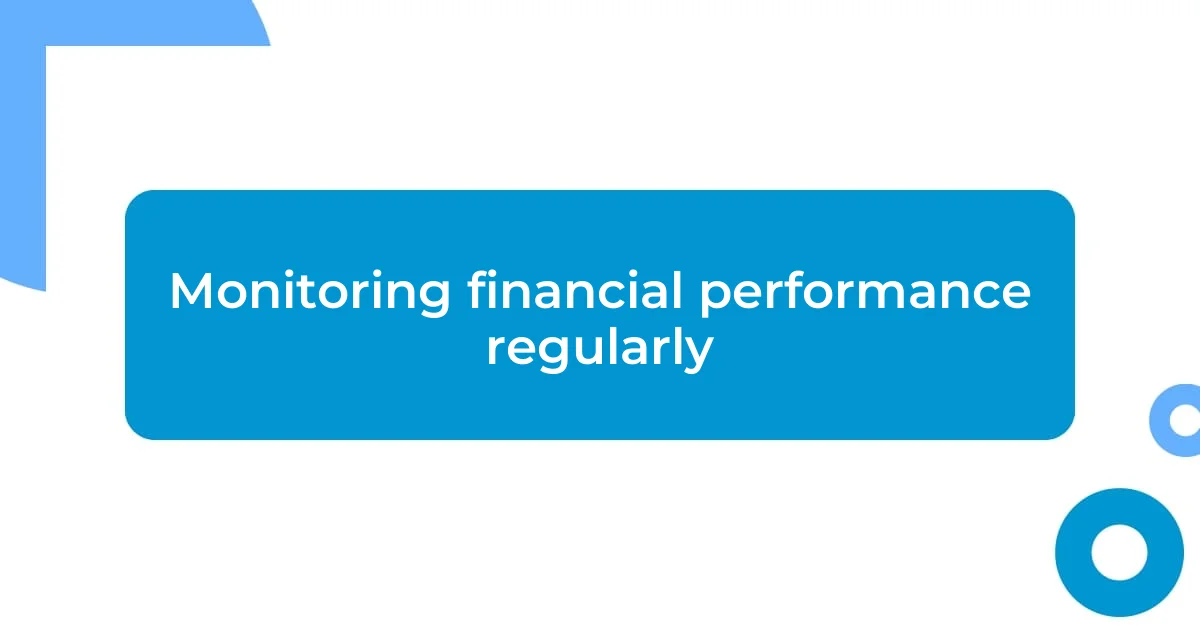
Monitoring financial performance regularly
Monitoring financial performance regularly is crucial for anyone looking to adapt to fluctuating economic conditions. I recall a time when I implemented a monthly review system, dedicating a few hours each month to pour over my budgets and expenses. It was illuminating to see how much I had unknowingly spent on impulse buys—like that extra coffee shop visit. Have you ever been shocked by those small expenses that add up quickly?
I discovered that using financial apps made this process even more straightforward. Connecting my bank accounts allowed me to track spending in real-time, so I could spot patterns instantly. I remember the moment I realized I was spending significantly more on entertainment than I intended; it led me to cut back and redirect those funds into my savings. Isn’t it empowering to see where your money flows?
Eventually, I learned to set specific financial performance indicators for myself—like sticking to a budget percentage for savings or investments. This not only guided my spending but gave me a sense of accomplishment every time I met my target. I felt a burst of joy when I reached my savings goal for that dream vacation. Have you measured your success in financial terms, and how did it feel when you hit those targets?
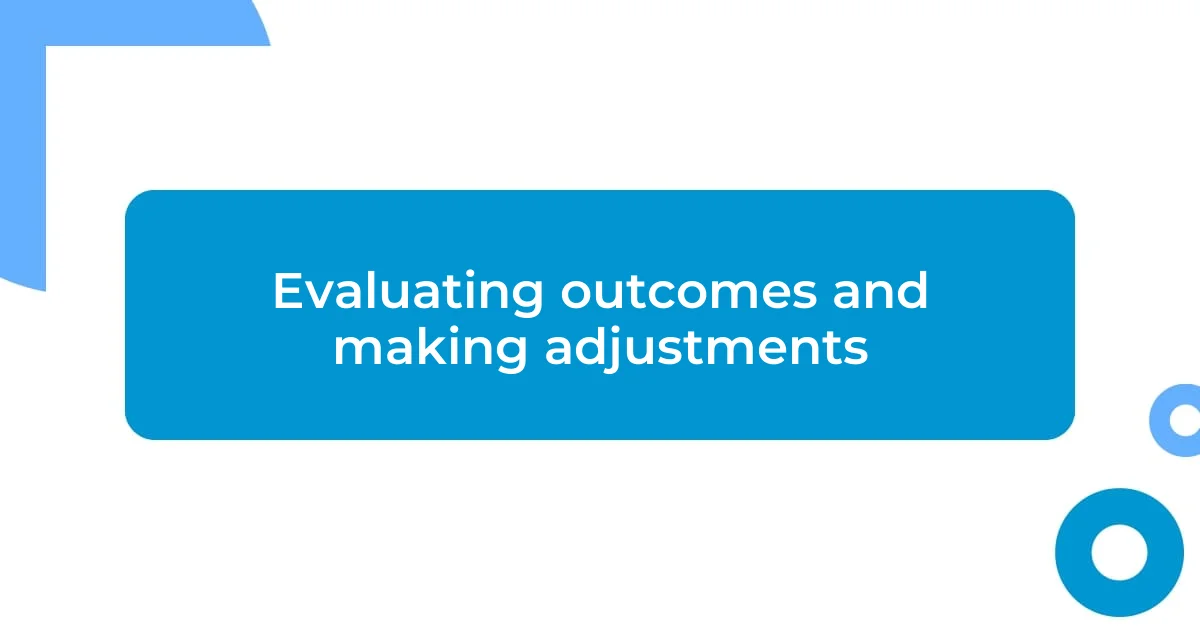
Evaluating outcomes and making adjustments
Evaluating the outcomes of my budget adjustments has been a pivotal part of my financial evolution. I remember one month when I noticed my expenses had crept up, largely due to subscription services I had forgotten about. This realization prompted me to dive deeper—did I really use all those services? I was surprised to find that I could cut out several, freeing up cash that I could redirect toward savings. Can you think of any subscriptions or recurring costs in your life that may no longer serve you?
The process of making adjustments is ongoing and requires an openness to change. For instance, after analyzing my spending patterns, I found that dining out was a significant drain on my budget. However, rather than completely eliminating it, I shifted to identifying affordable local spots rather than high-end restaurants. This balance allowed me to enjoy experiences while still being mindful of my finances. How have you adapted your spending habits to maintain enjoyment without overspending?
Celebrating small successes keeps me motivated through this process. Last year, I realized that tracking my spending didn’t just make me aware of where my money went; it also ignited a kind of excitement within me when I saw my savings start to blossom. I recall celebrating a milestone when I reached my first goal in my savings account—dining out with friends to share my win felt deserved and rewarding. Have you found joy in your budgeting journey as you observe your progress?












